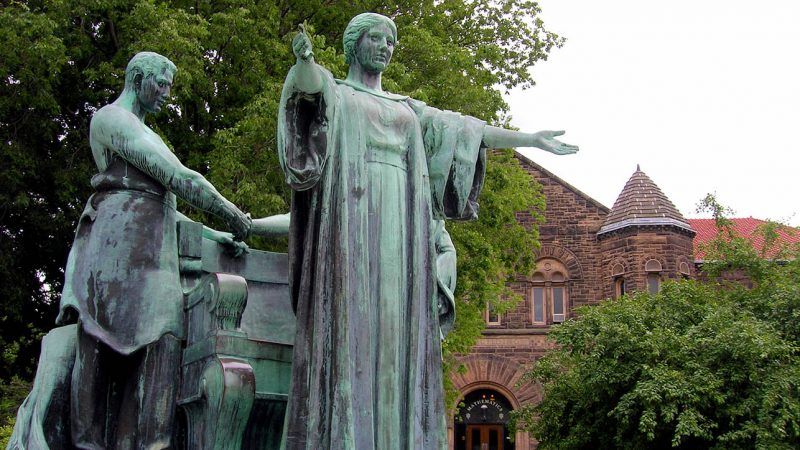First Amendment Group Sues the University of Illinois Over Bias Reporting System, Restrictions on Political Speech
"An elaborate investigative and enforcement regime designed to restrain, deter, suppress, and punish speech."

Speech First, a legal organization that defends the First Amendment on college campuses, has filed suit against the University of Illinois at Urbana-Champaign.
The group takes issue with three of the university's policies: its restrictions on political leaflets, its bias reporting system, and the no-contact orders it issues to students accused of bias.
The first of these is the most obviously suspect from a First Amendment perspective. Students who wish to post leaflets or materials about candidates "for non-campus elections" must first receive permission from the administration.
"The University has no compelling interest in imposing a prior restraint on this category of political speech nor would this prohibition be narrowly tailored to any such interest," the lawsuit says. "This rule chills protected speech and expression and forces students who do not wish to submit to this prior restraint to engage in self-censorship."
The lawsuit also argues that because the university defines "bias incidents" very broadly—as any action or expression motivated by hostility toward a protected group—its bias reporting system has the effect of chilling constitutionally protected speech. The no-contact directive empowers administrators to place limits on the rights of students involved in behavioral disputes; Speech First says this permits the university to punish students for mere expression. The lawsuit cites an example:
In November 2017, a graduate assistant, Tariq Khan, got in a shouting match with two students at an "anti-Trump" rally and subsequently broke one student's phone. Two days later, another student, Andrew Minik—who was not at the event—wrote an article about the incident for the online publication Campus Reform. The article shared a video of the incident and described what had occurred at the rally.
Shortly after the article was published, Khan sought a No Contact Directive against Minik. The University issued the directive—even though Minik was not present when the dispute occurred and merely wrote an article about the dispute for Campus Reform. The No Contact Directive against Minik stated: "The Office for Student Conflict Resolution has become aware of a problem involving you and another student….Therefore, I am directing you to have NO CONTACT with Tariq Kahn (oral or written, directly or through any third party) until further notice." The order warned that "[a]ny violation of this directive may result in charges before the appropriate Subcommittee on Student Conduct. Violations of no contact directives are taken very seriously and can have very significant consequences, including dismissal from the university."
Speech First previously sued the University of Michigan, which prompted administrators to revise the wording of an overly broad harassment policy that had stated "the most important indication of bias is your own feelings."
The University of Illinois did not immediately respond to a request for comment.

Show Comments (38)